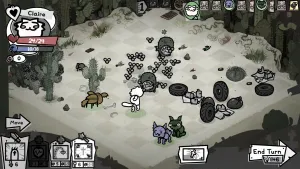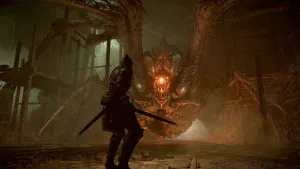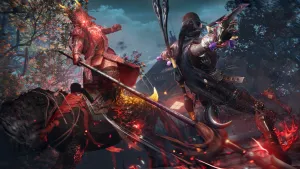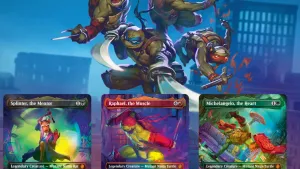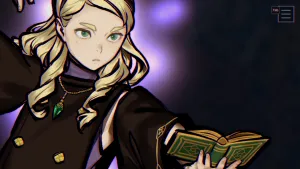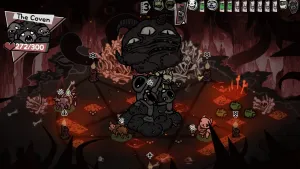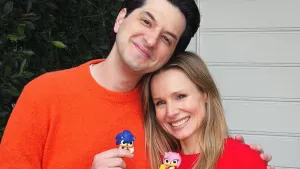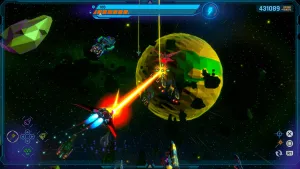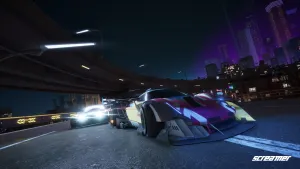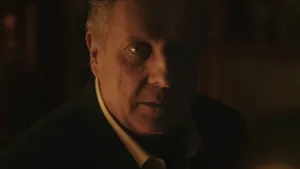Afterwords – Dissecting The Bloody Carnage Of Until Dawn

With Until Dawn, Supermassive has abandoned the Move-based gimmickry of its previous work in favor of a teen-horror adventure laden with life-or-death choices. We talked with creative director Will Byles about the game's major development challenges, twist-filled narrative, and what's next for the up-and-coming studio.
Until Dawn didn't have a ton of buzz
going into release, but the positive critical and user reviews have some
calling it a sleeper hit of 2015. How have initial sales been?
We've been
blown away by the community's reception of the game but cannot comment on sales
numbers. [Editor's note: Until Dawn was the seventh best-selling game (not
including digital sales) in August, according
to NPD.]
Until Dawn started out as a
first-person Move title for the PS3. How far were you into development when you
decided to shift the perspective, platform, and control methods?
Originally,
the PS Move controller represented the flashlight that you'd be carrying
throughout the game. We had already shot everything, white-boxed out the entire
game, and got a level to publishable quality that we showed at Gamescom in
2012. Several things then happened then in a kind of "perfect storm." Firstly,
there was a massive positive response from the PlayStation community, who were
overwhelmingly in favor of us making a non-Move version. Secondly, in
development we had noticed how great the game looked in a third-person view
when we were using the debug cameras. Thirdly, the PlayStation 4 was peeking
its head over the horizon, and fourthly, we had a great story.

How did Sony react when you told them
you basically wanted to rework the entire game, given they were the publisher?
With all of
these factors coming into consideration at the same time and with the success
of Heavy Rain, the conversation with Sony was very collaborative. We all wanted
Until Dawn to be as good as possible and to reach as wide an audience as
possible. Serendipity.
Given how much changed, what elements
remained the same during the transition?
The
fundamental story remained the same but we worked very carefully to add in
meaningful branching. Conversations became choice-based and consequential, and
character development was in large part down to the player. We had to rewrite
the entire script with Larry Fessenden and Graham Reznick to make it all a
little darker but still keep the charm that they had brought to the original.
Coming Up Next: What the actors bring to the table and one surprising plot twist that was left on the cutting room floor...

Did the actors have to come back and
do any reshooting?
We reshot
everything after the changing to the PS4, bringing some of the original cast
back, recasting others, and adding the Analyst. We had to get going with them
as early as possible because of the amount of time it takes digitizing them and
their performances.
Until Dawn's story is rooted in some
classic horror concepts, but halfway through, the narrative takes a major
twist. What were your goals for the story?
We were keen
to try some story-telling techniques not often used in games. We wanted to use
a narrative perspective shift in order to keep the story vital over nine hours.
Narrative perspective shift can only be done in a branching storyline if you
cannot go back to a previous save, effectively undoing your last decision. We
wanted the decisions you make to be based on what you "think" you know without
being duplicitous with the player, as discovering a pertinent fact after the
event that completely shifts your perspective has a very powerful effect; it's
a bit like the end of The Usual Suspects
or The Sixth Sense. We also wanted to
make sure that, like them or hate them, the characters' safety was very fragile
and entirely in your hands.

Can you share any ideas or plot twists
that didn't make the cut?
At one stage
one of the characters was pregnant. I won't say who or with whom, but ultimately
it proved too distracting from the main story line.
Did any of the actors help shape their
character's personality or dialogue?
Working with
great actors is a real joy as they bring so much to the production and their characters.
I'm a great believer in letting the actor own the role, bringing to it their
own personal lenses and filters. You end up with much deeper characters than
can be written because an entire life has gone into the making of that actor.
One of my favorite lines was an ad lib from Brett Dalton when he finds Josh: "Come on then, you f---ed up son of a b----!" It adds a level to Mike's character that we hadn't seen or written.
Traditionally in games, getting the subtleties of a performance across has proved very limiting. However, we were working with a very new (to game) technique that allowed us to record and render in a much more detailed way. Capturing every expression of the actors as separate models before blending them together in the final performance. This allowed the actors much more freedom to explore the subtleties of their characters.
Coming Up Next: How Supermassive kept track of all the possible outcomes, and what's next for the developer...

A lot of story-driven adventure games
present a player choice, and then resolve it rather quickly in order to get all
players back on the same path. How was it trying to create long-lasting
consequences? How did you track all of the different branches that are
possible?
As I was
saying earlier about the narrative perspective shift, we wanted the decisions
that you make to have far reaching consequences and to allow the player to see
the chain of events that had led to that consequence.
We came up with the idea of the Butterfly Effect to let the player know that they had done something significantly consequential, and to allow them to follow the subsequent knock-ons that would lead to an outcome.
We used a program that let us put everything from the story and script together with interactions and gameplay into individual nodes, all linked both to a branching network but also vertically within a stack so that we could follow any thread to any consequence.
What decision most surprised you in
terms of how the majority of gamers reacted/selected?
In the
testing environment, we were always surprised by people's choices. One that we
were often told was a pointless dilemma was the Ashley/Chris choice with the
gun. Everyone internally said that players would choose to shoot Chris. But in
playthroughs that proved very wrong. It was much closer to 50-50. Don't forget
to check out the global stats feature after your first playthrough of the game
where you can see a percentage breakdown of choices from the community.
Emily seems like the only irredeemable
character – I tried being supportive of her and she was still horrible. What
were you going for with that character?
Ha ha. Emily
is my favorite character and has, depending on your choices, the best character
arc of them all. She starts off appearing very superficial and irritating, but
consider for a moment her position in the group. She was part of the "alpha"
couple the year before but is now rejected by Mike in favor of Jessica; she has
some unfinished business with him. So Matt may be not her ideal guy and maybe
she's trying to put a strong face onto things. She ends up, despite getting a
hard time from everyone – and if she survives – one of the saviors of the
night.

Until Dawn is a huge leap forward in
terms of depth and production values compared to Supermassive's previous games.
Do you want to continue making this style of adventure game, or is Until Dawn
another step towards something bigger?
Thank you.
Yes, we've been going all out to make Until Dawn the best of its kind across
the board and we are definitely going to develop that theme with our next
projects. It was very encouraging to get such a good response from the gamers
and the critics and it seems that the space is there for more. I love horror,
but there are many other genres on which we think this kind of treatment would
work beautifully.
Will there be an Until Dawn 2?
We have
nothing to announce at this time.
Anything else you want to tell fans of
the game?
The best
result for us is that the fans took the time to engage so deeply with the game.
It's incredible if you go and look at YouTube or Tumblr or Twitter to see the
amount of positive reaction Until Dawn has garnered, but most of all, they gave
it a chance. The majority of fans seem to have ignored any doubters and
completely "got" what we were trying to do. And for that we say a big "Thank
you!"
An abridged version of this interview originally appeared in issue 271 of Game Informer.

Get the Game Informer Print Edition!
Explore your favorite games in premium print format, delivered to your door.
- 10 issues per year
- Only $4.80 per issue
- Full digital magazine archive access
- Since 1991
